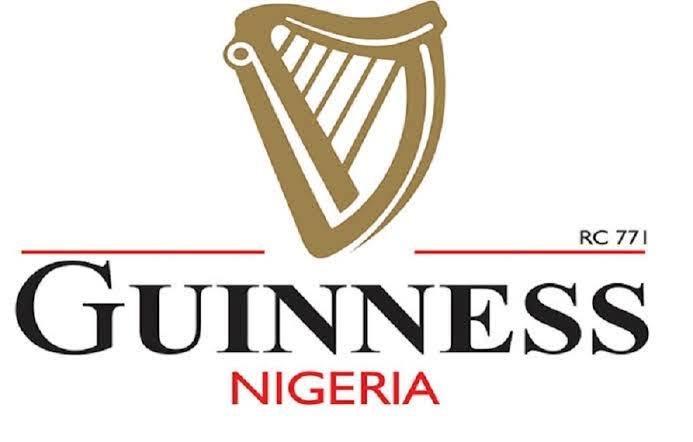Guinness Nigeria Plc in brink of shut down amid raising forex losses

Guinness Nigeria Plc is having a tough time as it continues to record FX losses that could affect its ability to pay out dividends in the future.
In light of this situation, insiders told Platinum Times Nigeria that Guinness may start mass firings of employees soon.
More multinational corporations are leaving Nigeria as the government struggles with an unstable currency market and the withdrawal of fuel subsidies, and other companies are reporting significant forex losses that have hurt their share prices.
The central bank of Nigeria’s (CBN) announcement of the naira’s floating or unification as a single currency was one policy that many Nigerian analysts predicted could spell doom for businesses throughout the country.
However, the situation reached an all-time low of apprehension when Glaxosmith, a big pharma company, announced its exit from the Nigerian market a few days ago, citing the lack of forex to process its international transaction as the primary reason behind its failure in Nigeria.
Dangote Group, MTN, Cadbury, and Airtel are just a few of the leading businesses impacted by bad government policies.
According to statistics analyzed by Platinum Times Nigeria, the current situation shows that Guinness Nigeria Plc, one of Nigeria’s largest brewers, may soon cease operations if necessary precautions are not followed.
Guinness Nigeria Plc just announced its 2023 full-year results for the fiscal year that ended in June 2023, and they showed a staggering loss after taxes of N18.1 billion.
The last time it disclosed a loss this size was in the Covid year of 2020, when it disclosed a N12.5 billion loss after tax.
In contrast to 2020, when Covid-19 was blamed for the loss, Guinness now seems to be dealing with a variety of problems. On a few will we concentrate.
First, because of increasing inflation and moderate economic development, its clients are currently experiencing weaker purchasing power.
Remember that Nigeria today faces a double-digit inflation rate that has been made worse by the elimination of gasoline subsidies.
The popular brewing company, which Platinum Times Nigeria suspects may start laying off its workforce shortly, may have felt it had waded its way out of the murky waters after it recorded a large profit in 2021, but current reality indicates to dismal days ahead for the company.
According to the Platinum Times Nigeria, Guinness had to actively market its value brands, particularly its spirits sector, which increased by 36% year over year, to prevent a repeat of its 2020 experience. In order to increase sales, it has also depended on pricing modifications.
However, despite increasing sales by 11% YoY, it has had trouble keeping costs under control.
OPEX devoured 70% of gross income during this year compared to 67% the year before.
In comparison to the same period in 2022, the cost of sales and operating costs was N209 billion in absolute terms.
Guinness was still able to turn a profit despite a rise in costs.
There are aspects of business that you can control and others that are simply beyond your power to influence.
The currency rate has been out of Guinness’ and other Nigerian businesses’ control for years. Although the real cost of a transaction reflects the market, the Central Bank has artificially maintained the cost entry in the books low.
However, since the naira was unified, businesses like Guinness have had to revalue their foreign currency obligations at the new rates, which has resulted in a significant exchange rate loss.
According to Nairametrics, the business reported an exchange rate loss of N49 billion, completely eliminating the N23 billion operating profit it had previously made.
Even if the losses are merely “paper losses,” they will have an effect on Guinness’ cash flows once it begins to pay back the loans.
In comparison to N9.4 billion as of December 2022, Guinness has a related party dollar loan of $22.5 million, making the naira equivalent presently N17.9 billion.
At the conclusion of the year, the corporation also had loans relating to letters of credit totaling around $33.8 million, 18.8 million euros, and 2.9 million pounds.
Forex-denominated trade and other payables total $48.1 million, EUR 245,000, and GBP 5.5 million.
In the upcoming quarters, these loans will increase the company’s expenses, making it difficult to become profitable unless the loans can be restructured.
To boost profits, prices may potentially be raised, but this would reduce volume and drive customers to other brands.
The best-case scenario for Guinness now is to raise more money or receive another rescue from its parent corporation.
The corporation distributed dividends ostensibly out of retainer earnings notwithstanding the difficulties it confronts. It has the funds necessary to do this.
It has N92 billion in cash and was planning to distribute N15.6 billion in dividends this year.
With just over N7 billion in remaining retained earnings, Guinness generates enough cash to continue paying dividends, but distributions will either have to be halted or will be extremely low.
It will take time to see how this will change the share price at the moment.
Enigerianews Paper
